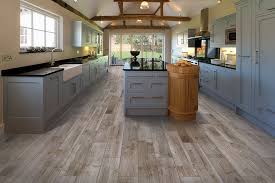Pros and Cons of Commercial Flooring


When it comes to commercial flooring, some factors must be taken into account. These include comfort, maintenance, durability, and slip resistance. You will find that several options will suit your needs.
Durability
A durable floor is a must for many commercial buildings. Depending on the type of building, there are many options for commercial flooring.
Vinyl and carpet tiles are standard options. These materials are easy to clean and maintain. They come in a variety of colours and styles.
Epoxy is another popular choice. This coating protects against stains and mould. It also offers a high degree of impact resistance. In some applications, it can withstand alkalines and acids.
Bamboo is another option. The durability of bamboo flooring depends on the quality of the material and the adhesives used. Some businesses prefer laminate wood flooring for their offices, while others opt for more durable solid wood floors.
Natural stone is an excellent flooring choice. It can withstand the elements for thousands of years. However, if not installed properly, it could crack or break.
Comfort
You may choose a comfortable floor over your standard office mate for many reasons. If you are considering installing a new floor, consider a durable and hygienic solution. In addition to the obvious concerns about your floor’s health, you must be mindful that cleaning crews are under pressure to keep things pristine. Luckily, several commercial flooring solutions are designed to withstand even the heaviest of traffic. An excellent place to start is with a high-performance floor covering like vebroflex. These options boast rubber matting, a plethora of UV-stable colours and a top coat that can survive the slings and arrows of the ever-changing weather. Whether you’re laying a carpet, hardwood or tile, Vibroplex has you covered.
Slip-resistance
Slip-resistance of commercial flooring is a significant safety factor. A lack of slip resistance can lead to a hazardous workplace. This is especially true for industries with high foot traffic.
Slip resistance is also an essential safety feature for restaurants. For instance, a kitchen has a high risk of spills, and slip-resistant floors can prevent accidents.
Commercial flooring is available in several styles and materials. Using a professional can help you choose the right product for your business.
Before making a large purchase, understand the different reactions between flooring materials. Doing so can prevent you from falling victim to legal claims. And if you do get into trouble, you may be liable for expensive defence costs.
The best floors are usually made of aggregates to reduce the chances of slipping. These are a mixture of minerals and resins and provide traction and surface grip.
Maintenance
Commercial flooring is an integral part of the functionality and appearance of a property. It is also a significant component of safety. Not only can a dirty floor wear down quickly, but it can also be a trip hazard. In addition to increasing your company’s risk of slip and fall accidents, a dirty floor can damage a building’s image.
It is essential to plan a maintenance program for your floors. A good cleaning partner can develop a comprehensive plan that suits your budget and needs.
Each type of commercial flooring has its maintenance requirements. Floors such as LVP, rubber, tile, and hardwood require more frequent care than traditional floors. Keeping them clean can extend their lifespan.
The number of people who visit your facility daily will dictate the amount of floor cleaning required. For example, a multistory store will need more cleaning than a small office.
Cost
Commercial flooring can be a costly business investment. Its price can vary greatly depending on the type of flooring, the number of square feet, and the job’s complexity. A tight economy can stretch budgets. But the right floor solution will make or break a business.
A professional flooring installation company can make a space appealing and safe. They can also help ensure that the floor is installed correctly. Using a licensed contractor is an excellent way to ensure that your flooring is safe and meets all of your state’s regulations.
Installing commercial flooring can cost anywhere from a few dollars to several hundred. Flooring that’s softer underfoot will be easier to keep clean. In addition, carpets are quieter in a busy space.
Vinyl and laminate floors are cheaper options. Laminate is relatively easy to install.
